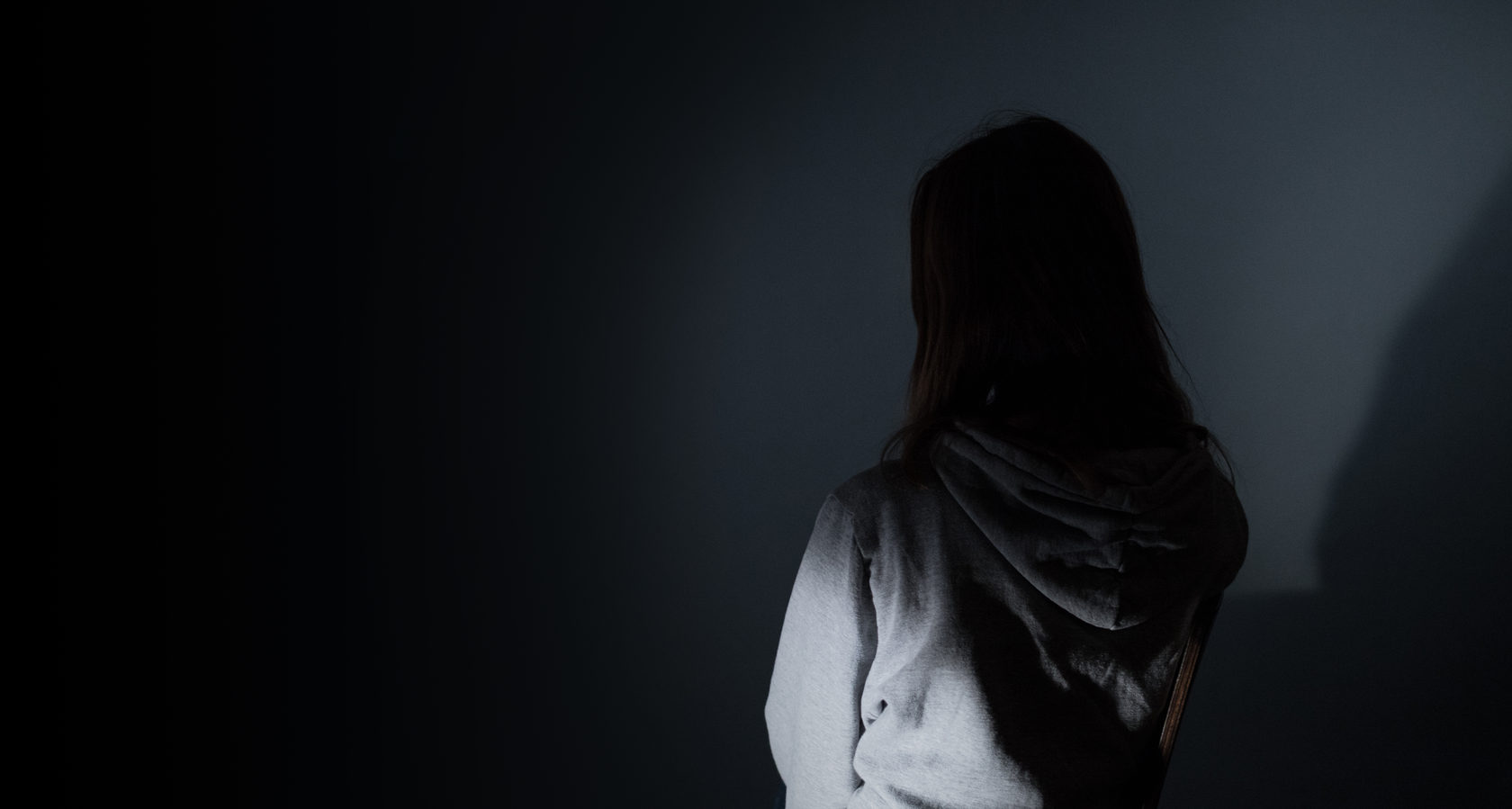EACH OF US THOUGHT IT WAS OUR LAST NIGHT
Katsya (not her real name)

EACH OF US
THOUGHT
IT WAS OUR
LAST NIGHT
THOUGHT
IT WAS OUR
LAST NIGHT
Katsya (not her real name)
We meet with Katsya not in Belarus. She and her husband left the country after the wave of terror that started in August. The girl's employer assisted in their relocation, and she continues to work remotely. The young family took to the streets after the official results of the 2020 presidential election were announced. Witnessing the security forces' wanton brutality, they were about to go home, but decided to ask the policemen who seemed to be bored to show them the best way.
We meet with Katsya not in Belarus. She and her husband left the country after the wave of terror that started in August. The girl's employer assisted in their relocation, and she continues to work remotely. The young family took to the streets after the official results of the 2020 presidential election were announced. Witnessing the security forces' wanton brutality, they were about to go home, but decided to ask the policemen who seemed to be bored to show them the best way.

Her husband was thrown into a prison truck and battered there. When her man screamed in pain, several riot policemen surrounded Katsya and started insulting her, pretending that they were about to attack the girl. One of the officers tore a white bracelet - a symbol of presidential candidate Svyatlana Tsikhanouskaya's supporters - off Katsya's hand and ordered her to eat it. Katsya recalls that she just could not grasp what was going on. The policeman hit her over the arms for refusing to eat the bracelet. Fortunately , they turned their attention to a new victim at that moment. The detainees were taken to the notorious detention facility on Akrestsin Street in Minsk.
Her husband was thrown into a prison truck and battered there. When her man screamed in pain, several riot policemen surrounded Katsya and started insulting her, pretending that they were about to attack the girl. One of the officers tore a white bracelet - a symbol of presidential candidate Svyatlana Tsikhanouskaya's supporters - off Katsya's hand and ordered her to eat it. Katsya recalls that she just could not grasp what was going on. The policeman hit her over the arms for refusing to eat the bracelet. Fortunately , they turned their attention to a new victim at that moment. The detainees were taken to the notorious detention facility on Akrestsin Street in Minsk.

Picture by Kacia
Twenty-three and then thirty-six people in a four-bed cell. The only resort was the so-called manger, a window in the cell door through which food is served. Neither meals nor water were given to the detainees within three days. But due to this 'manger' the prisoners could get some extra air provided that it was not shut.
Twenty-three and then thirty-six people in a four-bed cell. The only resort was the so-called manger, a window in the cell door through which food is served. Neither meals nor water were given to the detainees within three days. But due to this 'manger' the prisoners could get some extra air provided that it was not shut.


Typically, the window got closed at night, when men were pulled out of the neighbouring cells into the corridor and beaten there. Lots were detained together with their loved ones, and the appalled women were listening to screams behind the closed window. In Katsya's cell, there was a woman who got a rubber bullet wound. Feeling short of breath, her cellmates asked the doctor to at least open the window.
"It was impossible to speak because there was no oxygen. It was impossible to cry because there was no oxygen. I thought [we might face] the most stupid death that could happen," Katsya says.
"It was impossible to speak because there was no oxygen. It was impossible to cry because there was no oxygen. I thought [we might face] the most stupid death that could happen," Katsya says.
Typically, the window got closed at night, when men were pulled out of the neighbouring cells into the corridor and beaten there. Lots were detained together with their loved ones, and the appalled women were listening to screams behind the closed window. In Katsya's cell, there was a woman who got a rubber bullet wound. Feeling short of breath, her cellmates asked the doctor to at least open the window.
"It was impossible to speak because there was no oxygen. It was impossible to cry because there was no oxygen. I thought [we might face] the most stupid death that could happen," Katsya says.
"It was impossible to speak because there was no oxygen. It was impossible to cry because there was no oxygen. I thought [we might face] the most stupid death that could happen," Katsya says.

Picture by Kacia
In response to their requests, the cell door was opened twice – but then a bucket of water was poured on the women. And the small cell's walls which had been already wet due to the breathing of dozens began to 'cry'.
"Each of us thought about the war when people were sent to gas chambers. Our situation was similar," says Katsya. During the last night they were spending in the prison on Akrestsin Street the cellmates did fear for their lives.
"Each of us thought about the war when people were sent to gas chambers. Our situation was similar," says Katsya. During the last night they were spending in the prison on Akrestsin Street the cellmates did fear for their lives.
In response to their requests, the cell door was opened twice – but then a bucket of water was poured on the women. And the small cell's walls which had been already wet due to the breathing of dozens began to 'cry'.
"Each of us thought about the war when people were sent to gas chambers. Our situation was similar," says Katsya. During the last night they were spending in the prison on Akrestsin Street the cellmates did fear for their lives.
"Each of us thought about the war when people were sent to gas chambers. Our situation was similar," says Katsya. During the last night they were spending in the prison on Akrestsin Street the cellmates did fear for their lives.
On the third day, they experienced formalistic trials as well as the transfer to the remand prison in the town of Zhodzina. Katsya was sentenced to 10 days in jail. The judge did not even say what she was charged with. While waiting for being put into a paddy wagon that was supposed to take them out of the yard on Akrestsin Street, the girl burst into tears for the first time. Dozens of beaten men were kneeling nearby. Some could not stand up on their own. As Katya did not know that her husband had been released earlier, she apprehensively scanned the bruised faces. In the paddy wagon, the girls were guarded by three security officers. Two of them were glued to their phones, scrolling down Tinder profiles. The third policeman who seemed to be older told yesterday's Akrestsin detainees with a straight face that no one beat people there.
On the third day, they experienced formalistic trials as well as the transfer to the remand prison in the town of Zhodzina. Katsya was sentenced to 10 days in jail. The judge did not even say what she was charged with. While waiting for being put into a paddy wagon that was supposed to take them out of the yard on Akrestsin Street, the girl burst into tears for the first time. Dozens of beaten men were kneeling nearby. Some could not stand up on their own. As Katya did not know that her husband had been released earlier, she apprehensively scanned the bruised faces. In the paddy wagon, the girls were guarded by three security officers. Two of them were glued to their phones, scrolling down Tinder profiles. The third policeman who seemed to be older told yesterday's Akrestsin detainees with a straight face that no one beat people there.

After the release, most cellmates got in touch on Telegram. In their chat, the girls support one another. They came to the conclusion that it was Yauhen Shapetska, Head of the detention centre on Akrestsin Street, who had poured water on them.
After the release, most cellmates got in touch on Telegram. In their chat, the girls support one another. They came to the conclusion that it was Yauhen Shapetska, Head of the detention centre on Akrestsin Street, who had poured water on them.
The administration of the Zhodzina remand prison did not know what to do with undocumented prisoners, Katsya says. The only paper she had was a certificate of staying in 'Akrestsin'. But one of the employees took care of our interviewee and another girl who found herself in the same situation. After several hours of walking around the offices there, they were released. Katya was lucky - her husband was waiting for her at the prison walls. He found her name on the list made by HRC Viasna. Human rights activists told him that the authorities started to release the detainees.
The family is not going to return home until a change of government occurs in Belarus.
The family is not going to return home until a change of government occurs in Belarus.
The administration of the Zhodzina remand prison did not know what to do with undocumented prisoners, Katsya says. The only paper she had was a certificate of staying in 'Akrestsin'. But one of the employees took care of our interviewee and another girl who found herself in the same situation. After several hours of walking around the offices there, they were released. Katya was lucky - her husband was waiting for her at the prison walls. He found her name on the list made by HRC Viasna. Human rights activists told him that the authorities started to release the detainees.
The family is not going to return home until a change of government occurs in Belarus.
The family is not going to return home until a change of government occurs in Belarus.


 |  |  |  |
